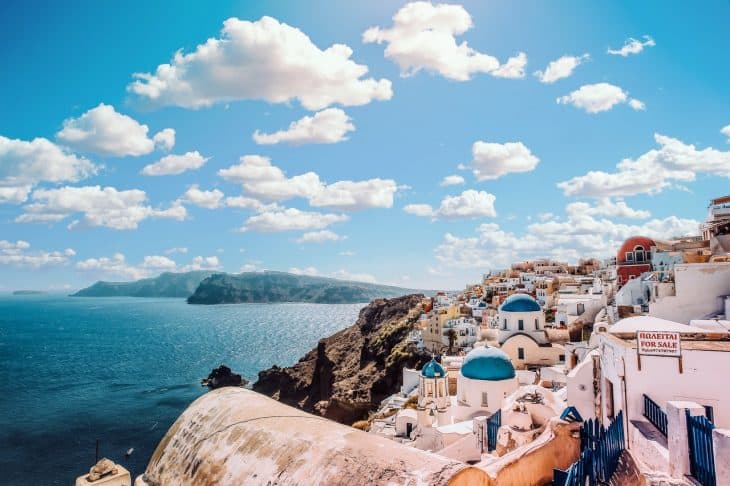
Greece, the cradle of Western civilization, is a land steeped in history, culture, and natural beauty. From its ancient ruins and myths of gods and goddesses to its stunning islands and Mediterranean cuisine, Greece captivates travelers and historians alike. With a legacy that includes the birthplace of democracy, philosophy, and the Olympic Games, this fascinating country continues to influence the world today. In this collection of 100 Greece facts, discover the rich heritage, breathtaking landscapes, and unique traditions that make Greece a must-see destination.
- Greece is officially known as the Hellenic Republic.
- Greece is located in Southeastern Europe.
- As of 2018, Greece has an approximate population of 10.7 million.
- The official language of Greece is Greek.
- The motto of the country is ‘Freedom or Death’.
- Greece is considered a unitary parliamentary republic.
- It is also considered a developed country with an advanced high-income economy.
- Greece is also considered the cradle of western civilization.
- The national anthem of Greece is called ‘Hymn to Liberty’.
- The capital city of Greece is Athens and it is also the largest city in the country.
- Greece consists of 9 traditional geographic regions.
- Around 80% of Greece is made up of mountains.
- Greece has the longest coastline on the Mideterrenian Basin.
- Greece is also a founding member of the United Nations.
- It is also the tenth country to join the European Communities.
- Greece has a total of 18 UNESCO World Heritage Sites.
- The highest peak found in Greece is Mount Olympus.
- The economy of Greece is considered the largest in the Balkans.
- People in Greece drive on the right side of the road.
- Independence day in Greece is celebrated on the 25th of March.
Greece has around 250 sunny days annually.
Annually, Greece experiences approximately 3,000 hours of sunshine on average. That said, Greece is considered one of the sunniest countries in Europe.
Greece has several warm days that allow both residents and visitors to swim comfortably until November. The country also holds the world record for the most number of Olympic medals in proportion to the population of the country.
The flag of Greece is popularly known as Blue and White.
The Greek flag has 9 blue and white horizontal stripes. These stripes are said to represent the nine syllables of the Greek motto Eleftheria I Thanatos which translates to Freedom or Death in English.
The blue color on the flag represents the sky and the sea, while the white color on the flag represents the purity of the struggle of freedom. The upper left of the flag also features a traditional Greek Orthodox cross is placed.
Athens is the most visited city in Greece by tourists.
Often, Athens is considered as the historical capital of Europe due to its rich history and culture. In the city of Athens, some of the most visited sights by tourists are the Acropolis of Athens, its national archaeology museums, and the Hadrian’s Library.
Other tourist attractions also include local marketplaces, churches, and neighborhoods.
Greece offers free education.
In Greece, students do not need to pay for any tuition fees in public schools as long as they are Greek citizens. This offer also extends to some foreigners, provided that they meet certain criteria first.
However, despite this, many parents opt to send their children to private schools which do charge tuition fees. Nonetheless, public universities also offer free education so long as the student passes the entrance exams.
The island of Hydra is considered one of the most beautiful in Greece.
Known for its beautiful architecture and pebble filled beaches, Hydra lies in the Sacronic Islands between the Argolic Gulf and Myrtoan Sea.
Tourists visiting the island of Hydra can treat themselves to its captivating character and excellent resorts within the area.
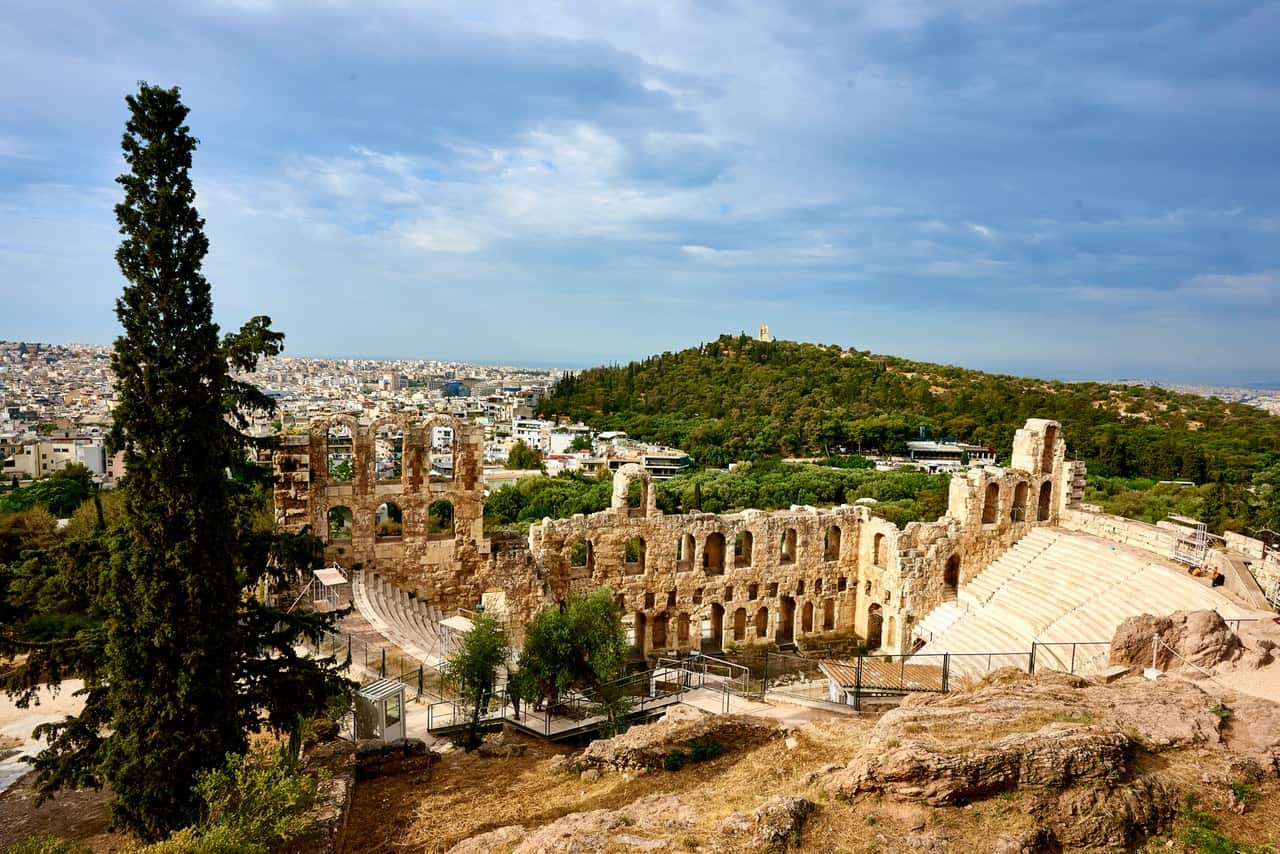
The city of Athens is known for its long, hot, and dry summers.
Weather in Athens typically consists of Mediterranean climates with long summers and mild winters. However, it is not considered uncommon for snow to appear during the winter seasons.
Despite the hot and dry weather, Athens still attracts thousands of tourists annually.
The Super League Greece football club formed on July 16, 2006.
Considered the highest-ranking professional league in Greece, the group consists of 14 teams. Typically, game season runs between August to May with each team playing 26 matches.
As of August 2020, the Super League Greece has ranked 18th in the UFF rankings based on its performance in the last five years.
The city of Piraeus used to be the center of trade in Greece.
In the 5th century BC, Piraeus served as the new port of what was known as Classical Athens. This location also handled all the imports and transit trades in the whole city of Athens.
At its peak, the port of Piraeus also became known as the largest passenger port found in all of Europe.
Mount Olympus is also known as the home of the ancient Greek gods.
You may be familiar with Mount Olympus for its role in Greek mythology as the home of the ancient Greek gods and goddesses. In real life, this mountain is also known for its exceptional biodiversity and its rich flora.
Additionally, Mount Olympus houses the first National Park in Greece established in 1938. Across the globe, Mount Olympus is also known as a World Biosphere Reserve.
Paros is considered one of the most popular islands in Greece.
Found in the Cyclades, the island of Paros is the third-largest island of the complex. Like many islands in Greece, Paros features some of the most intricate ancient architecture found in the country.
Paros is also home to beautiful blonde beaches, mountains, and as well as cliff-top villages. The island is also accessible through a short ferry ride from Greece’s capital, Athens.
Cremation is forbidden by the Greek Orthodox church.
In Greece, cremation has been strongly opposed by the Greek Orthodox Church for decades. According to the church, the human body is a creation of God which should not be burnt. As such, Greece buries most of its deceased in coffins or caskets.
Greek is one of the oldest languages spoken in Europe.
According to scholars, Greek has been spoken by all natives in Greece from 1450 B.C. As of 2020, approximately 13 million people still speak the language daily in Greece, Albania, and Cyprus.
The European Union includes Greece.
Out of the 27 members of the European Union, Greece ranks as the 16th largest economy. As of 2019, Greece’s GDP per capita places at $20,317 in nominal value.
In ancient Greece, soldiers wore up to 70 pounds of armor.
During ancient Greece, the hoplite army was made up of heavy infantrymen. These soldiers wore expensive armor made completely out of bronze called ‘panoply’.
The armor would commonly be glued to linen fabric and weighed as much as 32 kilograms.
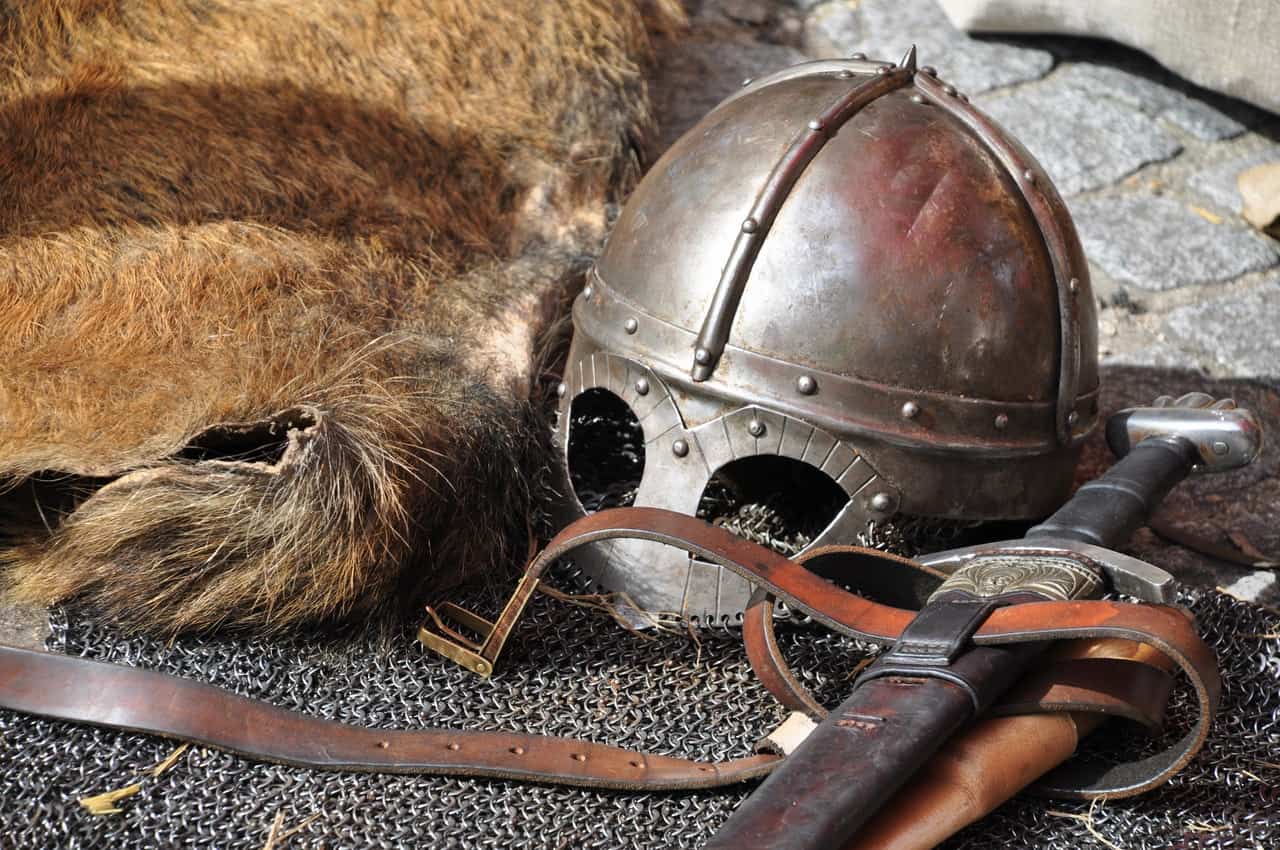
The ancient Greeks are often considered as the inventors of mathematics.
Some scholars believe that Pythagoras of Samos introduced the concept philosophy and mathematics to the world. Though this may be debated, Pythagoras also coined the famous Pythagorean Theorem which is now considered as one of the best known mathematical theorems in the world.
Princess Alice of Greece died from diphtheria.
After returning to England, Princess Alice fell ill and passed away in Buckingham Palace on the 5th of December in 1969. She died at the age of 84 and used to rest at Windsor Castle.
However, later on, her remains were transferred to the church of St. Mary Magdalene at Gethsemane in Jerusalem as her final resting place.
Athens is considered the birthplace of democracy.
To this day, Athens remains an important reference point for democracy. The world’s first democracy developed around the 6th century BC, though still unbalanced and led to exploitation of the people.
This early form of democracy caused economical, political, and social problems that lasted until the second half of the 7th century.
It is also said to be the birthplace of the Olympic games.
As the name suggests, Ancient Olympia introduced the Olympic games first celebrated by the Greeks. Traditionally, Greece held the Olympic Games every four years, with 50,000 participants from all over the country.
Ancient Greek culture also considered the Olympic games as a religious festival held to celebrate Zeus and his honor. At the time, winners did not receive gold, silver, or bronze medals. Instead, winners would be given olive wreaths known as kotinos.
During the 1950s, only 30% of Greek adults could read and write.
Around this time, the majority of Greece did not have access to good education. However, the literacy rate in Greece has reversed and stands at 97.94% as of 2018.
Around 40% of the population of Greece lives in Athens.
As a whole, Greece has nine geographic regions. Out of the nine, most people live in Central Greece where Athens is the most populated city.
As of 2011, Athens has a population of 3 million where the majority of the populace are Greek. Other minority groups in Athens include Armenians, Romani, Turks, and Pomaks.
The Greeks consider many "normal" gestures as rude.
In Greece, waving with your hand with the palm spread out is considered an insult. Instead, the Greeks wave with their palms closed which often seems strange to non-Greeks.
In Greece, pointing to someone with your finger is also considered rude, while giving a thumbs up is the equivalent of giving the middle finger. Definitely one of the facts about Greece that you have to remember.
Greek men must serve a minimum of 1 year in any branch of the armed forces of Greece.
According to Greek law, all Greek males must serve in the armed forces of Greece for a minimum of one year. These men may also serve in the armed forces until the last day of their 45th year before retiring.
Greek men may enlist as early as their first year of being 19.
Several words from the English language come from Greek origins.
It is estimated that over 150,000 words used in the English language derive from Greek origins. Many of these terms include scientific and technical words.
However, many common words used today also come from Greek origins such as philosophy, photo, phrase, and many others.
Greek workers enjoy one month of paid vacation annually.
On average, Greek workers have around 30 days of paid vacation. New parents are also given a generous amount of paid leaves from work before and after the child’s birth.
Greek workers also have the right to leave one hour early or arrive one hour later for work to tend to their newborn.
Greece has a coastline that spans up to 9,000 miles long.
The Greek coastline is ranked as the 10th longest in the world. It only makes sense that best way to get around Greece is by ferry or boats to visit its islands.
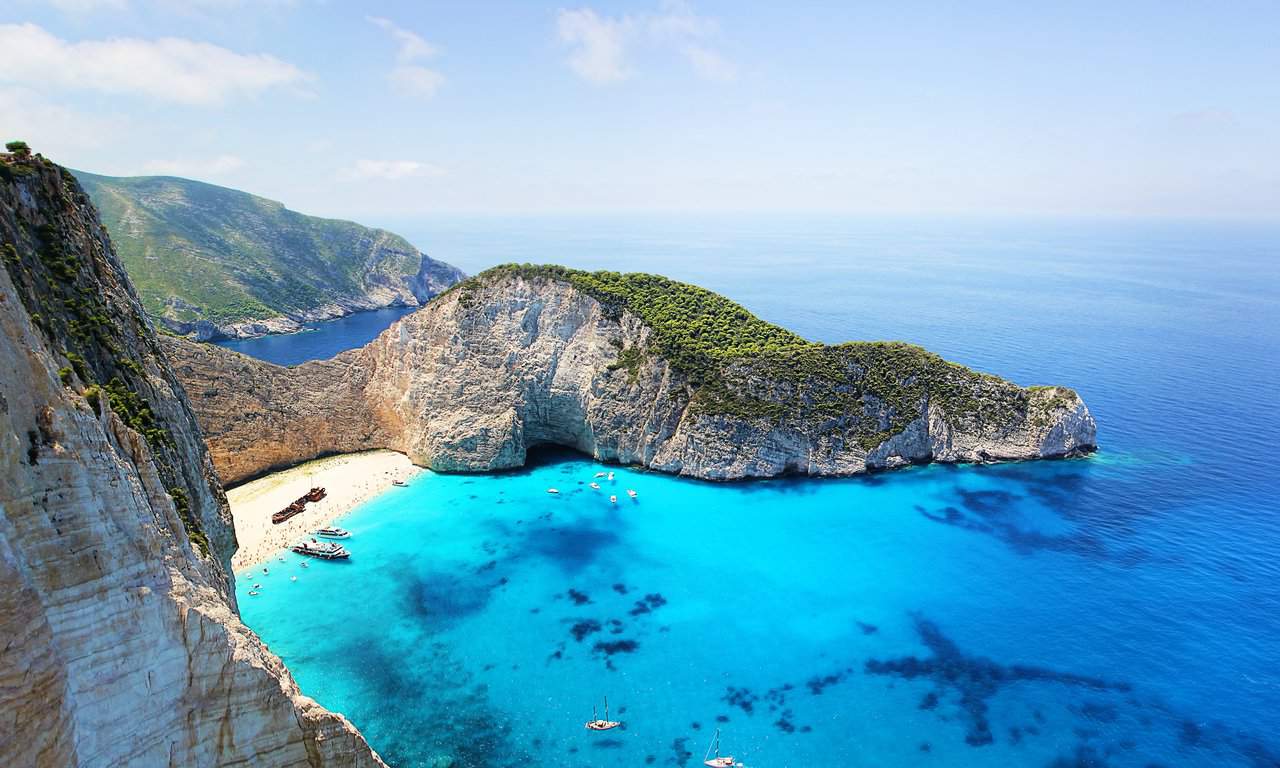
Greece’s national anthem has a total of 158 verses.
The national anthem of Greece is a poem called the Hymn of Freedom written by Dionysios Solomos. Consisting of 158 verses, the Greek national anthem is also known as the longest anthem in the world.
Some Greeks take a puff of breath after complimenting someone.
Greeks are considered to be very superstitious and often perform small acts to counter them. One of these superstitions involves the evil eye, which is said to come from compliments or jealousy.
This is why when Greeks give a compliment to someone, they huff out a small breath to protect the person from this evil spirit. Other techniques also include throwing salt over one’s shoulder or spitting.
Before the Euro, Ancient Greece used the drachma as its currency.
In Greece, the drachma was used as an old form of currency used in several parts of its ancient history. This was used for over 10 centuries before being replaced by the Euro currency.
The drachma currency was a standard unit of silver coinage that normally had distinctive names for its daily use.
Greece has over 2,000 islands in its territory.
Despite this high number of islands that the country owns, only 170 have communities. Some of these islands can also be found just a few miles off the Turkish coast.
Of all the Greek islands, Crete is the biggest at 3,189 square miles in total.
Greece was part of the Ottoman Empire.
In the mid 15th century, the people of Greece lived under Ottoman rule. This continued until the first successful Greek War of Independence in 1821.
This victory eventually made way for the start of the Hellenic period in 1822.
An old Greek legend states that God created the world by sifting the Earth through a strainer.
An old Greek legend that states how god sifted all the soil of the Earth through a strainer to create the islands and continents of the world.
Once only stones were left, god tossed these stones over his shoulder. This act ultimately led to the creation of Greece and its capital, Athens.
Greece was once completely underwater.
Scientists have discovered that a tectonic plate that crashed into Europe made a collision that eventually created the mountain ways in Greece. Currently, this tectonic plate still moves around from time to time and causes earthquakes around the Aegean Sea.
Some cities in Greece remain underwater today such as the city of Pavlopetri that dates back almost 5000 years ago.
Greek civilization is old enough to have tried every form of government.
Researchers have stated how Greece’s history is old enough to have time to try out each form of government. Over the course of time, Ancient Greece applied different political systems to help them figure out who should rule over the country.
In written history, Greece has tried four different types of government systems: democracy, monarchy, oligarchy, and tyranny.
In Ancient Greece, only men were allowed to perform in plays.
These actors would wear large masks to show which roles they were acting out during the play. In Ancient Greece, the staff of the theatre would also carry large sticks with them.
This was brought around in case the audience was displeased with the play and began to riot. At the time, most plays would also be performed in outdoor or open theatres where it could seat a large audience.
Around 10% of Greek adults are unemployed.
Many have stated that despite having a university degree, it is considered difficult to become employed in Greece. As of 2020, the long term unemployment rate in Greece still remains at 10%.

The term “Taking the bull by the horns” comes from Greece.
The saying comes from one of the legends of the hero Hercules. In the Greek myth, Hercules saves a city called Crete from a rampaging bull by taking it by its horns and defeating the creature.
The saying is commonly used when dealing with a difficult situation with great determination and bravery. The logic from this comes from needing to face your problems head-on by its horns rather than trying to find easier ways to avoid the problem. How’s that for neat facts about Greece?
Poseidon and Athena once argued over who would become the guardian of Athens.
Many stories in Greek mythology feature the Olympian gods and their impact on Greek culture. In one of the stories, Poseidon, and Athena argued over who would become Athens’ guardian.
Poseidon gave the city the gift of water and the sea, while Athena provided Olive trees. Ultimately, Athena won this contest and was chosen by the people of Ancient Greece.
During each Olympics, the Greeks sacrificed a hundred bulls to Zeus.
In Greek religion, the act of animal sacrifices was considered as a central ritual act. This ritual also served as the focal point of the first Olympic games and festivals.
During the ancient Olympic games, the winners would also be given the crown of olive leaves that were cut from the sacred tree of Olympia. The games’ victors would also be granted supreme glory and embody a concept of excellence.
Greece is visited by nearly 16.5 million tourists each year.
This is more than the total of the population of Greece itself. In Greece, tourism accounts for nearly 16% of the country’s GDP.
Greece attracts tourists with its rich culture and history and its ideal vacation weather with warm and long summers.
Ancient Greece refers to the period between 750 BC and 30 BC.
Also known as the Greek Dark Ages, this period also marked the beginning of the Early Middle Ages and the Byzantine era.
Classical Greek culture is also noted to have a large influence on ancient Rome.
Greece has no navigable rivers.
Compared to other countries, rivers found in Greece are small and generally shallow. Around 80% of Greece’s terrain is also made up of mountains.
Greece also has a total of 21 rivers which are connected to other countries.
The Greeks are known to have revolutionized the art of sculpture.
The Ancient Greeks were said to be the first to make sculptures that depicted movement and emotions. Unlike other sculptors, the Greeks gave their sculptures great detail.
More commonly, these sculptures would be made entirely out of bronze or marble. Ancient Greek sculptures were also originally painted in bright colors which later on deteriorated over time.
In Greece, voting is required by law for all citizens that are the age of 18 and older.
Greece mandates voting to all of its citizens that are of legal age. If an individual fails to vote, penalties may be imposed on those without a valid excuse.
Some may also be arrested for a duration of one month to a year if they fail to voteduring election periods.
In Ancient Greece, the average life expectancy for a woman was 36.
On average, the normal lifespan for those in Ancient Greece was around 35 years of age. For men, the average life expectancy was 45 years old.
However, for infants that were born during that time, the survival rate was 50%. In modern society, women in Greece live an average of 82 years and men live for an average of 77 years.
Around 7% of the world’s marble comes from Greece.
In Greece, pure-white marble can be commonly found and is primarily used for sculpting. While Greece doesn’t lead globally, Greece supplies 10% of the world’s marble export as of 2018.
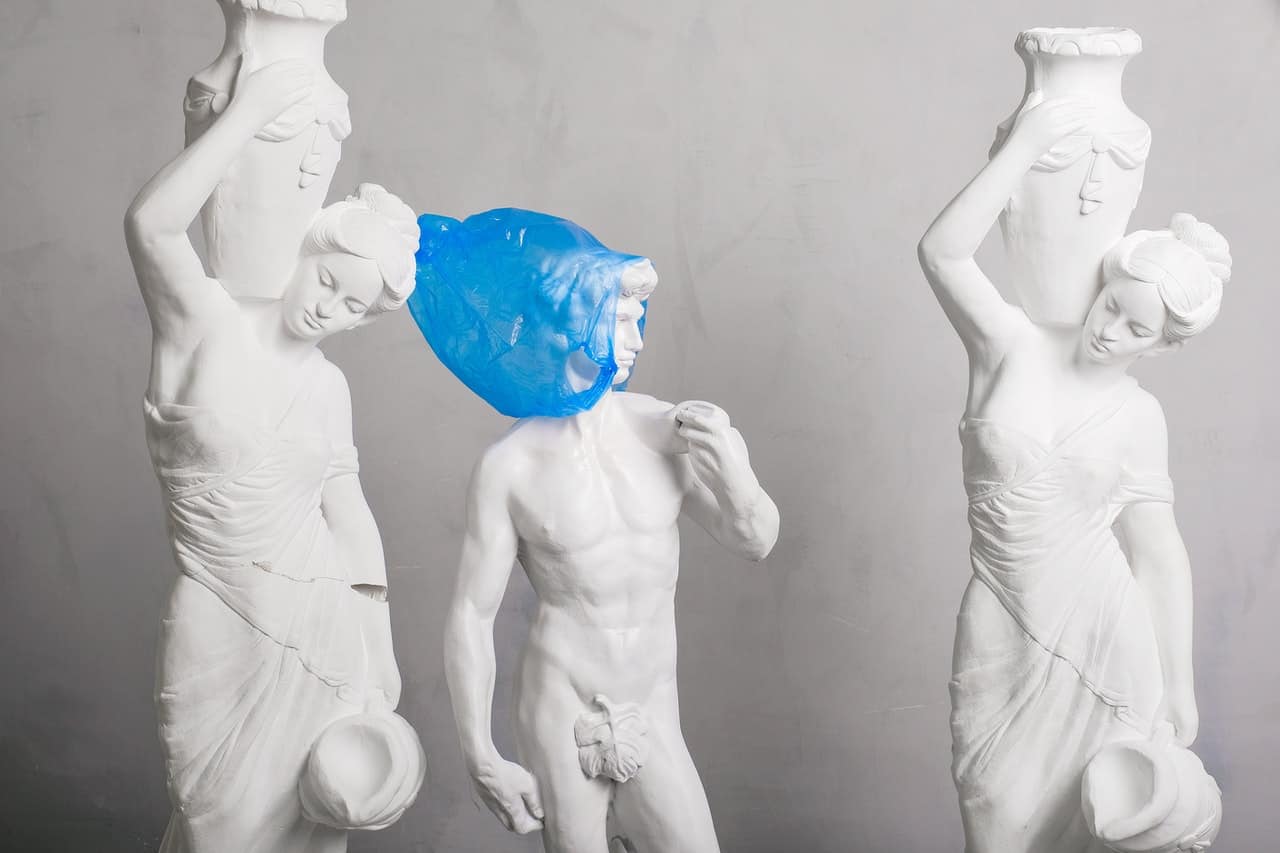
The Greeks had Indo-European ancestors.
These ancestors settled in Greece sometime during 1900 BC. Historians believe that they resided alongside the Minoans for many centuries before the rise of the Mycenaean civilization.
Greece is also known to have created one of the most influential civilizations in all of history known as Classical Greece.
Greece has the most archeological museums in the world.
The country of Greece has over 100 archaeological museums which also indicates the archaeological wealth of the country. The National Archaeological Museum is considered the largest museum found in Greece.
This National museum is also considered as one of the most interesting museums in the country.
The Spartans also lived in Greece.
The population of Sparta was made up of three main groups. These included the Spartans, Helots, and the Perioeci.
However, only those who were direct descendants of the Spartans could be granted citizenship in Greece as it is inherited by blood.
The national sport of Greece is football.
Since the 1980s, the popularity of the sport has increased. The national football team of Greece also qualified for its first world cup finals in 1994.
The team had also won the European Championships in 2004. Apart from football, basketball, hiking, climbing, and other mountain sports are also rising in popularity.
Turks are the largest minority group found in Greece.
The majority of the Turkish community in Greece can be found in the northeastern part of the country. The Greek government also provides this community with Turkish-language education so that they may equally enjoy the benefits that the Greeks enjoy.
There were no political parties found in Athenian democracy.
Likewise, there were also no signs of governments or oppositions in Athenian democracy. Voting was also done simply by majority winnings.
However, despite this, the government in Athens was not considered a true democracy as the majority of its population were not considered as legal citizens. This means that these people could not vote as well.
Greek ships make up around 70% of the European Union’s total merchant fleet.
There is a Greek law that states that 75% of a ship’s crew must be Greek, with the rest of the crew made up of small minority groups. The government also strictly regulates the people who can board these ships.
Greece and Turkey had a long history of disputes until the late 1990s.
Until the 1990s, one of the largest threats to Greece was the Turks due to their long historical disputes that ran on for decades. However, after coming to the aid of each other, both countries improved their relationship with one another and had since been on good terms.
Greece is one of the largest producers of olives in the world.
As of 2019, Greece ranks fourth in olive production with over 1.5 metric tons of olives annually. Greece has been known to cultivate olive trees since the time of Ancient Greece.
A few olive trees that were planted during the 13th century are still known to produce olives until today.
Greece is also known as Ellas or Ellada.
While the rest of the world calls the people of Greece, Greeks, the locals often refer to themselves as Ellines. Additionally, the Greeks also often refer to their country as Ellada or Hellas in English.
This is why on Greek passports, their country is written as the Hellenic Republic despite official documents still describing their nationality as Greeks.

Greece has more international airports than most countries in the world.
Greece has a total of 15 international airports which are located on the islands that are considered the most popular tourist destinations. Each airport also has a connection with each part of Greece which allows both locals and tourists easy access to all parts of the country.
The main international airport in Greece is the Athens International Airport Eleftherios Venizelos which is commonly initialized as AIA.
Greece is also considered the leading producer of sea sponges.
Greece has an abundant supply of sponges thanks to the Mediterranean Sea. Most of these sponges are produced in Kalymnos which is an island located in the southeastern Aegean Sea.
Greece has one of the lowest divorce rates in the European Union.
As of 2016, Greece has a divorce rate of 22% which is considered one of the lowest within the European Union. Traditionally, Greece also has one of the highest abortion rates in the European Union.
An ancient belief if Greece stated that shades of the color blue could repel evil spirits.
This is also why the color blue features in many Greek structures such as doors, windowsills, and furniture. Many church domes have also painted a shade of blue due to the belief that this would ward away evil spirits nearby.
The color was called Kyanos which is where the words ‘cyan’ and ‘cyanide’ are derived from.
Ancient Greece was not a single country.
Unlike modern Greece, Ancient Greece was made up of around 1,500 different city-states. Each of these states had different laws and armies which often had conflict with each other.
The national cheese of Greece is called Feta.
In Greece, this cheese is made from the milk of sheep. It can also be made with a mixture of goat milk that is later aged and produced in blocks.
Cheese is a major part of common Greek cuisine and is eaten often by both locals and tourists. The term ‘Feta’ refers to the practice of slicing the cheese to be placed in barrels.
The government in Greece provides free hospitals and also medical services.
In Greece, healthcare costs are considered one of the lowest among the European Union. Various social insurance funds coexist with the National Greek health system that allows its residents to be provided with free emergency care.
This is also available to other residents of other nationalities in public hospitals. Other benefits also include free emergency transportation, maternity care, and appliances or devices that are related to the patient’s medical condition.
In Greece, retirement homes are considered rare.
More commonly, the elderly continue to live with their families or in their own houses close to a relative. Most young people in Greece also commonly live with their families until they get married and have a family of their own.
The elderly are commonly taken care of by their children or by their grandchildren and are often visited when they live apart.
People from Greece commonly celebrate name days.
Among the name days, the most common is during Easter where those who are named Anastasios or Anastasia celebrate. Another is the day of St. George which is celebrated by those who share the same or a similar name to the saint.
It is also possible for some people to celebrate more than one name day. However, name days are not equivalent to that person’s birthday.
The first Olympic games took place in Greece in 776 BC.
The first ancient Olympic games were celebrated in Olympia from 776 BC until 393 AD. The games were considered an important event in honor of the Greek god, Zeus.
The first modern Olympic games were held in the city of Athens in the year 1896. However, many of the traditions from the ancient Olympic games were still carried on to the modern version.
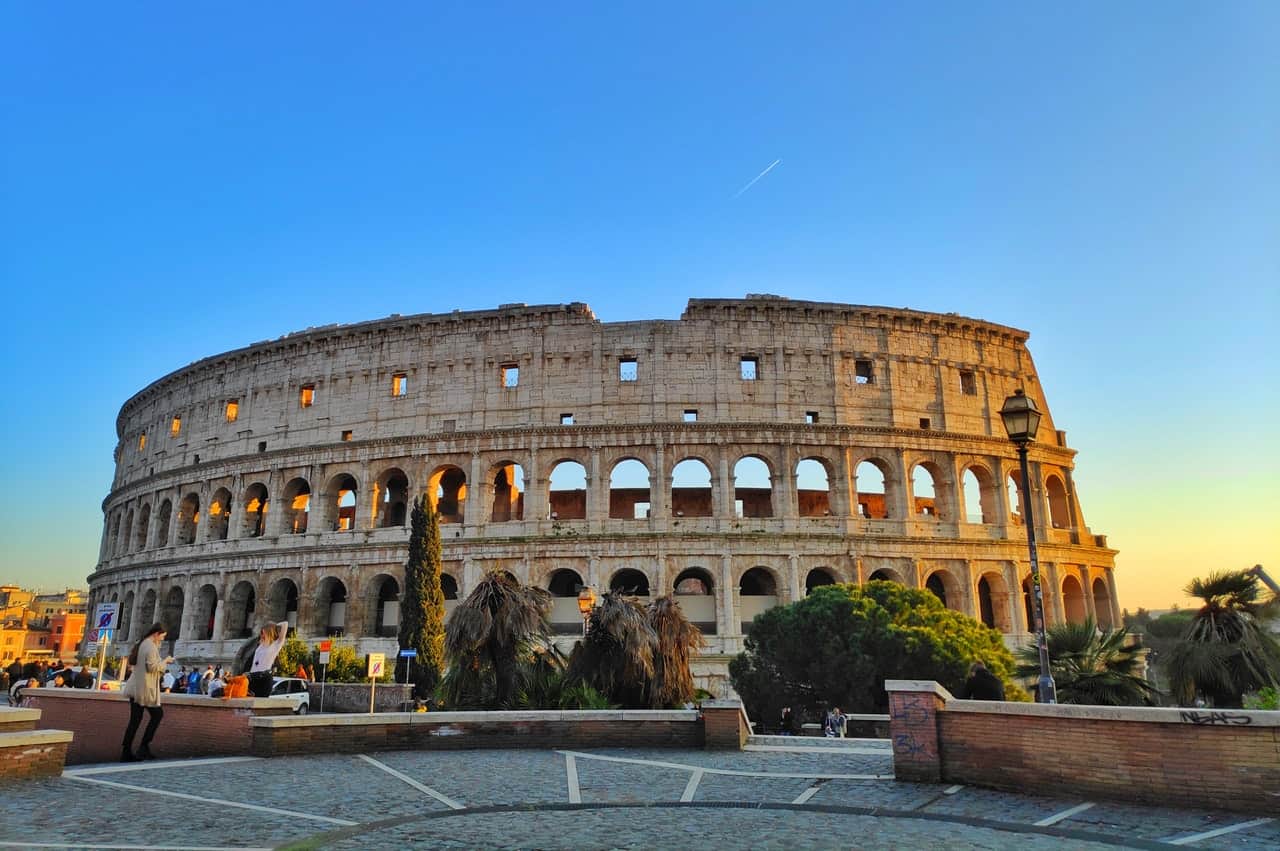
Greece is considered to have one of the richest varieties of wildlife in all of Europe.
It is stated that Greece houses over 116 species of mammals and over 240 different bird species. However, around half of the endemic mammal species that Greece has is considered endangered and are on the verge of becoming extinct.
There are also around 59 reptile species that can be found in Greece. The National animal of Greece is also the dolphin which is commonly used to represent the country. Definitely one of the more concerning facts about Greece.
Alexander the Great is the first Greek ruler to put his face on the side of Greek coins.
Traditionally, Ancient Greek coins displayed faces of gods and goddesses on their currency. However, Alexander the Great decided to put himself on a silver coin during his reign from 336 BCE to 323 BCE.
The coin was referred to as the Tetradrachm which depicted Alexander the Great as Herakles. On the back of the coin was an image of the Greek god, Zeus who was seated on a backless throne with an eagle on his arm.
The city of Rhodes is famous for housing one of the seven wonders of the ancient world.
Built by the Ancient Greeks, the Colossus of Rhodes perished during an earthquake in 226 BC. Because of this heritage site, the city is considered as one of the most popular tourist attractions in Greece.
The first municipal dump in the western world was organized by Greece around 500 BC.
During 500 BC, the city of Athens developed the western world’s first municipal dump program. During this time, local laws stated that waste must be disposed of by a minimum of a mile away from city limits and its walls.
Over time, this evolved into different dumping methods as well as the concept of recycling.
Thousands of birds have been observed to stop in Greece during migration periods.
Researchers have stated that around 100,000 birds from Northern Europe migrate to Greece during the winter due to its warmer climate. Some have also suggested that some birds from Asia also migrate to Greece to avoid colder climates.
Typically these birds will take shelter in the mountains or near riversides until the end of the winter seasons.
The first Greek philosopher was said to be a man named Thales of Miletus.
Thales of Miletus lived between 624 BC to 546 BC and was considered to be one of the most iconic philosophers in the history of Ancient Greece. This philosopher was famously noted for his natural explanations regarding the origins of the world.
He was also one of the first philosophers use natural explanations to explain the origins of man rather than basing his philosophy through mythology.
Greece has two major political parties.
The Socialists group consisted of the Panhellenic Socialists Movement which were also known as the PASOK group. On the other hand, the Democrats were known as the New Democratic Party.
Both political parties were founded during the same time in 1974 right after the fall of Greece’s military dictatorship. However, in 2012, the two political parties joined a coalition government to win against the Coalition of the Radical Left movement.
In Ancient Greek, feasts were only held for Greek men.
During the time of Ancient Greece, women were not able to participate in much of anything, including large feasts. However, some women would often be involved and take part in providing entertainment to the men.
Feasts were often held as a celebration of victory or happy occasions with roasted pigs being the most popular dish to be served. Definitely one of the facts about Greece you’d be glad about being obsolete.
In Ancient Greece, slaves made up 40% to 80% of the total population.
During ancient times, slaves were often captives from wars. Many were also enslaved as children as they were either abandoned or sold by their parents or families.
During this time, it was also considered acceptable practice and they would often be used to do the bidding of their masters and perform labor-intensive roles. Ancient slaves were also not given many rights and were treated much like objects during the time.
The Greek writer, Herodotus was said to be the first historian.
Herodotus was known as a famous Greek writer and an accredited geographer in Ancient Greece. He is also given the title as the father of history for being the first known historian to systematically collect data and document events that have happened.
Herodotus compiled his life’s work into a single major piece called The Histories.

Greeks have been known to love the sea.
Many Greeks share a great love for the oceans and seas. Many believe that this is due to the majority of the population being born near beautiful beaches and famous oceans.
Traditionally, the Greeks have also been noted to have lived from the sea and it is also featured numerous times in their ancient mythology. Some Greeks also worship the Greek god of the sea, Poseidon to give thanks for the gift of water and the oceans.
In Greece, the word ‘Barbarian’ refers to those who cannot speak Greek.
The word barbarian comes from the Greek word barbaroi which directly translates to someone who cannot speak Greek. Today, the word is commonly used to refer to those who act uncivilized.
In modern society, the word ‘Barbarian’ is typically also used as an insult to those who act wicked as well.
The Monk Seal has been part of Greece’s natural and cultural heritage for centuries.
In the story of The Odyssey, the Monk Seal is considered a significant part of the culture of Greece. These creatures have also been noted on coins that date back to 500 BC.
However, these seals have become endangered over time. Today, only 250 monk seals remain, making them extremely close to extinction.
The first Greek tragedy was performed in 534 BC.
The famous Greek tragedy began in 534 BC in the city of Dionysia. The first notable actor during these ancient times was a man named Thespis who was also the first actor in Greek Drama.
Today, many often refer to him as the father of the tragedy genre. The word Actor also comes from the term Thespian which is derived from the name of Thespis.
Spartan warriors would carefully comb their long hair before a battle.
In ancient Greece, the warriors of Sparta were known for their long and flowing hair. To the warriors, it was considered as a symbol of their pride and would be taken care of carefully before each of their battles.
Soldiers who acted cowardly would often have half of their hair shaved off along with half of their beards as well. When Spartan soldiers comb their hair before a battle, it is said to indicate that they intend to fight until their deaths for the sake of victory and honor.
Was this page helpful?
Our commitment to delivering trustworthy and engaging content is at the heart of what we do. Each fact on our site is contributed by real users like you, bringing a wealth of diverse insights and information. To ensure the highest standards of accuracy and reliability, our dedicated editors meticulously review each submission. This process guarantees that the facts we share are not only fascinating but also credible. Trust in our commitment to quality and authenticity as you explore and learn with us.
